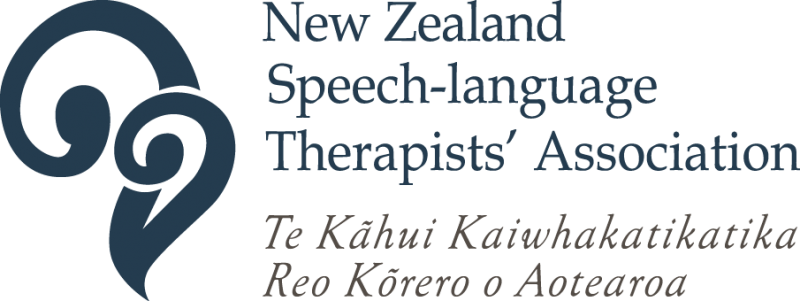If you think you, your child, or a whānau member need to see a speech-language therapist, ask your GP, kindergarten staff or teacher for a referral.
You can also refer yourself to your local speech-language therapy service. You do not have to wait for someone else to refer you.
You can find a directory of private speech-language therapists here and sort by region. Most therapists will indicate their speciality areas of practice.
Make sure you use a registered speech-language therapist.
A registered speech-language therapist chooses to belong to the self-regulating professional body which upholds professional and ethical standards.
You can find the national database of registered members directory here.
Frequently Asked Questions
No one is too old or too young for speech-language therapy
Speech-language therapy services are appropriate for people of all ages, from birth to death.
In cases where it is known that a child is going to be born with a medical condition, a speech-language therapist may start working with the child’s parents before they are born.
There are two types of speech-language therapy services:
- Public - funded and provided by the government (MOE, MOH, ACC)
- Private - you find a speech-language therapist and pay for the services yourself
Public Services
Public services may have long wait times. People with greater needs tend to be prioritised over those with lesser needs, which means that the more significant your needs are, the more likely and the more quickly you may be seen. Public services may have eligibility criteria, age restrictions, service delivery constraints, and funding and service caps.
We recommend you always ask about funded and non-funded treatment options to make an informed choice from all available options.
Private Services
Private services exist for those people and families who want different or more intensive speech-language therapy services than what the public service can provide and have money to pay for them. For example, they may want to see an SLT more frequently and for a longer time.
We recommend you always ask about treatment options inside and outside their expertise so that you can make an informed choice from all the options available to you.
If you are receiving public and private speech-language therapy, we recommend you ask your public and private speech-language therapists to collaborate to ensure the best care.
There are two main types of service. Most speech-language therapy treatment involves elements of both:
Direct Service
Where the speech-language therapist works directly with the person with communication or feeding/swallowing difficulties, direct services can be individually one-on-one or in groups.
Indirect Service
The speech-language therapist supports the significant others around the person who has communication difficulties in working with them effectively. This is sometimes called consultative service.
Government departments that fund, or fund and provide speech-language therapy services are:
Ministry of Education / MOE
The Ministry of Education provides a service for children.
You can ask your child’s daycare, kindergarten, or school to make a referral to the Ministry of Education. For children under four, you can also make the referral yourself. Ask your child’s ECE provider to help you make a referral or contact your local MOE office.
Regional Districts (formerly DHBs)
The Ministry of Health provides a speech-language therapy service for people of all ages with communication and swallowing needs related to a medical or health condition. You can ask your GP for a referral or ring the District directly and ask for the speech-language therapy department.
ACC
ACC’s no-fault scheme covers everyone in New Zealand if they are injured in an accident. ACC can help pay for various medical, health and treatment costs, including speech-language therapy if your injury is covered.
Sometimes, ACC only pays for part of these costs, and your treatment provider will ask you to pay the rest. Visit www.acc.co.nz to find out what injuries are covered and how to make an ACC claim.
Ministry of Justice
Communication assistance services are delivered by specialist speech-language therapists in justice settings. These services aim to enable people to participate effectively in justice interactions, e.g., giving evidence and participating in the courtroom.
Find more information about the Ministry of Justice Communication Assistance Services.
Oranga Tamariki
When children enter state care, they receive a Gateway Health Assessment. Sometimes communication needs may be identified during this assessment. The child’s lawyer may then pursue this, and the court may order Oranga Tamariki to fund additional (private) speech-language therapy for the child (when additional support is warranted/desired over and above what the Ministry of Education Communication Service provides).
Private speech-language therapy may also be funded as part of Oranga Tamariki’s Permanent Caregiver Support Package for a child.
WINZ
The Child Disability Allowance (non-income tested) is potentially available to help pay for the cost of extra care and supervision for children who are diagnosed with a serious communication disorder.
The Disability Allowance (income-tested) is potentially available for both children and adults to help pay for the cost of speech-language therapy intervention to treat their communication disorder. Visit the WINZ website to find out more.
Traditionally speech-language therapy was only delivered in person. Nowadays, in-person and telepractice/therapy (by phone or online videoconference) are options.
Which one suits you better will depend on the nature of your needs and your unique circumstances.
If you live in a remote area or there are not (m)any speech-language therapist providers near you, we recommend you consider working with a speech-language therapist remotely (services provided by phone or online).
You can find the list of registered telepractice speech-language therapists here.
